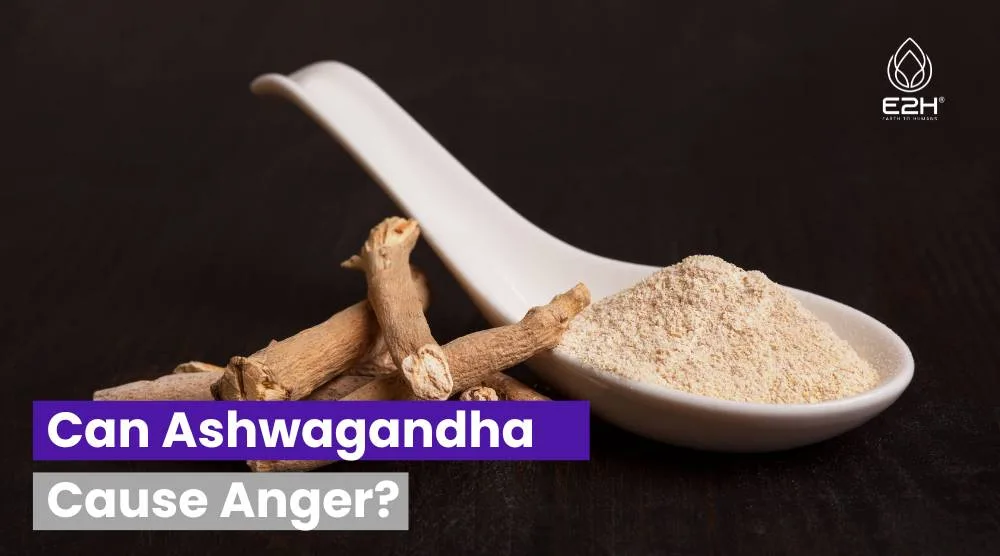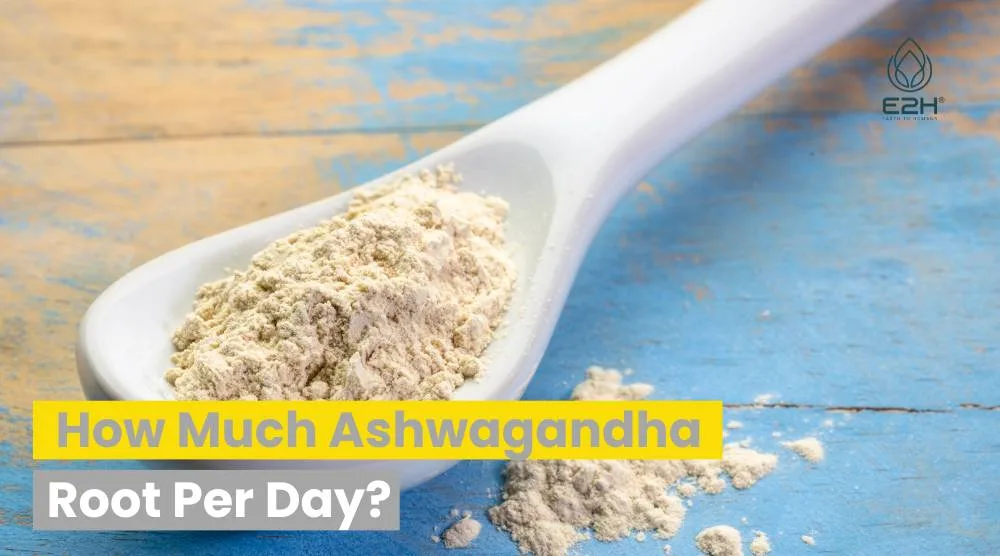Can Ashwagandha Cause Anger: Ashwagandha can cause anger in some individuals, as it affects emotional and hormonal balance. This reaction varies based on personal health factors.
Keep reading to understand why this herb might stir up feelings of anger and how to manage it effectively.
Can Ashwagandha Lead To Feelings Of Anger Or Irritability?
Yes, Ashwagandha can lead to feelings of anger or irritability in some individuals. This herb, widely used in Ayurvedic medicine, is known for its stress-reducing properties. However, its impact on emotions is complex and varies from person to person.
Ashwagandha influences the body’s stress response by regulating cortisol levels, a hormone associated with stress. For some, this regulation can lead to a calming effect, but for others, it might disrupt emotional balance, leading to irritability or anger. This reaction is often linked to the herb’s interaction with the endocrine system, which controls hormones.

Additionally, Ashwagandha’s effect on neurotransmitter levels, like GABA and serotonin, can also contribute to these emotional changes. It’s important to understand that while many experience positive effects, the herb can have diverse impacts based on individual body chemistry.
How Does Ashwagandha Interact With Emotions, Specifically Anger?
Ashwagandha interacts with emotions, particularly anger, through its influence on the body’s hormonal and nervous systems. It works by modulating the hypothalamus-pituitary-adrenal (HPA) axis, which plays a crucial role in stress response. Ashwagandha helps in regulating the production of cortisol, a stress hormone. When cortisol levels are balanced, it can lead to reduced stress and improved mood.
However, if this balance tips unfavorably, it can lead to increased irritability or anger. Additionally, Ashwagandha affects neurotransmitters in the brain, such as GABA, serotonin, and dopamine, which are vital in mood regulation. These neurotransmitters can either calm or stimulate the brain. In some cases, if Ashwagandha alters these levels significantly, it might lead to emotional responses like anger or irritability.
Can You Decipher The Science Explaining Ashwagandha’s Impact On Emotions?
The science behind Ashwagandha’s impact on emotions lies in its ability to influence the body’s physiological response to stress. Ashwagandha contains compounds known as withanolides, which have been shown to modulate the activity of the HPA axis. This axis controls the body’s reaction to stress and regulates the secretion of cortisol.
By normalizing cortisol levels, Ashwagandha can help in reducing stress and anxiety, thereby improving emotional well-being. Furthermore, Ashwagandha impacts the brain’s neurotransmitter systems. It increases the production of GABA, a neurotransmitter that promotes relaxation, and influences serotonin and dopamine, which are linked to mood and emotional response.
This interaction with neurotransmitters is key in understanding how Ashwagandha can both alleviate and, in some cases, exacerbate emotional states like anger or anxiety. The herb’s neuroprotective properties also play a role in supporting cognitive functions and emotional health. However, the exact mechanisms and individual responses can vary, making its effects on emotions a subject of ongoing research.
What’s The Intricate Relationship Between Ashwagandha And The Brain’s Functioning?
| Aspect of Brain Functioning | Impact of Ashwagandha |
|---|---|
| Stress Response | Regulates the HPA axis, reducing cortisol levels, leading to decreased stress. |
| Neurotransmitter Balance | Influences levels of GABA, serotonin, and dopamine, which are crucial for mood regulation and anxiety reduction. |
| Cognitive Health | Contains neuroprotective properties that may support cognitive functions like memory and concentration. |
| Sleep Regulation | Can improve sleep quality by regulating the sleep-wake cycle, promoting restful sleep. |
| Neuroinflammation | Anti-inflammatory properties may help in reducing brain inflammation, potentially beneficial in neurodegenerative diseases. |
Can The Dosage And Frequency Of Ashwagandha Intake Influence Emotional Responses?
Yes, the dosage and frequency of Ashwagandha intake can significantly influence emotional responses. The herb’s effects are dose-dependent, meaning that both low and high doses can have different impacts on mood and stress levels. A lower dose may be calming and stress-reducing, while a higher dose might lead to overstimulation or increased irritability.

The frequency of intake also plays a role; regular use can lead to a more balanced emotional state, but overuse or irregular intake might cause fluctuations in mood. It’s important to find the right balance, as individual responses to Ashwagandha can vary widely based on personal health, body chemistry, and sensitivity to the herb.
How Can One Handle The Emotional Side Effects Linked To Ashwagandha?
To handle the emotional side effects linked to Ashwagandha, consider the following steps:
- Adjust Dosage: If you’re experiencing side effects, reducing the dosage may help in balancing the emotional responses.
- Monitor Frequency: Pay attention to how often you take Ashwagandha. Sometimes, taking it less frequently can alleviate negative effects.
- Observe Diet: Certain foods may interact with Ashwagandha. A balanced diet can help in managing its effects.
- Track Your Symptoms: Keep a journal of your emotional states to identify patterns or triggers related to Ashwagandha intake.
- Stay Hydrated: Drinking plenty of water can help in flushing out excess herbs and maintaining overall health.
- Exercise Regularly: Physical activity can help in managing stress and improving mood.
- Practice Relaxation Techniques: Techniques like deep breathing, meditation, or yoga can be effective in managing stress and emotional imbalance.
- Take Breaks: If you notice persistent side effects, consider taking a break from Ashwagandha to see if symptoms improve.
- Listen to Your Body: Be attentive to how your body reacts and make adjustments accordingly.
- Seek Support: Sharing your experiences with friends or support groups can provide additional insights and coping strategies.
Any Tips For Managing Feelings Of Anger Caused By Ashwagandha?
Tips For Managing Feelings Of Anger Caused By Ashwagandha:
- Adjust Dosage: Lower the amount of Ashwagandha you’re taking, as high doses might intensify anger.
- Mindful Breathing: Practice deep breathing exercises to calm the mind and reduce anger.
- Regular Exercise: Engage in physical activities like walking, jogging, or yoga to release built-up tension.
- Healthy Diet: Eat a balanced diet to support overall emotional health.
- Adequate Sleep: Ensure you get enough sleep, as lack of rest can exacerbate irritability.
- Stay Hydrated: Drink plenty of water to help detoxify the body.
- Journaling: Write down your feelings to understand and manage your emotions better.
- Relaxation Techniques: Try meditation or relaxation exercises to calm the mind.
- Limit Stimulants: Reduce intake of caffeine and sugar, which can increase irritability.
- Engage in Hobbies: Spend time on activities you enjoy to distract from negative emotions.
Are There Alternative Adaptogens Promoting Emotional Balance Similar To Ashwagandha Supplements?
- Rhodiola Rosea: Known for reducing fatigue and enhancing mental performance.
- Holy Basil (Tulsi): Helps in lowering stress and balancing mood.
- Ginseng: Improves overall energy and assists in managing stress.
- Maca Root: Known for its mood-boosting and energizing properties.
- Schisandra: Helps in enhancing mental performance and reducing stress.
- Cordyceps: Used for its energy-boosting and anti-fatigue effects.
- Licorice Root: Can help in balancing adrenal function and managing stress.
- Eleuthero (Siberian Ginseng): Enhances stamina and reduces fatigue.

When Considering Ashwagandha Potential Risks And Benefits:
Potential Risks of Ashwagandha:
- Emotional Imbalance: Can lead to feelings of irritability or anger in some individuals.
- Gastrointestinal Issues: May cause stomach upset, diarrhea, or nausea in sensitive individuals.
- Interference with Medications: Ashwagandha can interact with certain medications, altering their effectiveness.
- Hormonal Fluctuations: It may affect hormone levels, which can be problematic for those with thyroid conditions or hormonal imbalances.
- Overstimulation: In high doses, Ashwagandha might cause restlessness or difficulty sleeping.
Benefits of Ashwagandha:
- Stress Reduction: Known for its ability to lower cortisol levels and reduce stress.
- Improved Cognitive Function: Can enhance brain function, memory, and concentration.
- Mood Regulation: Helps in balancing mood and reducing symptoms of anxiety and depression.
- Enhanced Sleep Quality: Aids in regulating the sleep-wake cycle, promoting restful sleep.
- Anti-inflammatory Properties: Beneficial in reducing inflammation and potentially aiding in the management of arthritis and other inflammatory conditions.
FAQs For ‘Can Ashwagandha Cause Anger?’
Is it common for Ashwagandha to cause feelings of anger?
While not common, some individuals may experience increased anger as a side effect of Ashwagandha.
Can Ashwagandha affect mood swings?
Yes, Ashwagandha can influence mood swings, potentially leading to irritability or anger in some cases.
Does the form of Ashwagandha taken affect emotional responses?
The form (capsule, powder, tea) might influence its absorption and, consequently, emotional responses.
Are certain people more prone to anger when taking Ashwagandha?
Individuals with certain health conditions or sensitivities may be more susceptible to experiencing anger.
Can reducing Ashwagandha dosage minimize feelings of anger?
Yes, lowering the dosage can help in reducing anger or irritability caused by Ashwagandha.
Conclusion
Ashwagandha is a beneficial herb for many, it’s important to be aware that it can cause anger in some individuals. Understanding your body’s response to Ashwagandha is key. If you notice any changes in your mood or emotions, consider adjusting the dosage or frequency. Remember, every individual’s experience with Ashwagandha can be unique. Stay informed and attentive to how your body reacts, and you can enjoy the benefits of this herb while minimizing any adverse effects.














